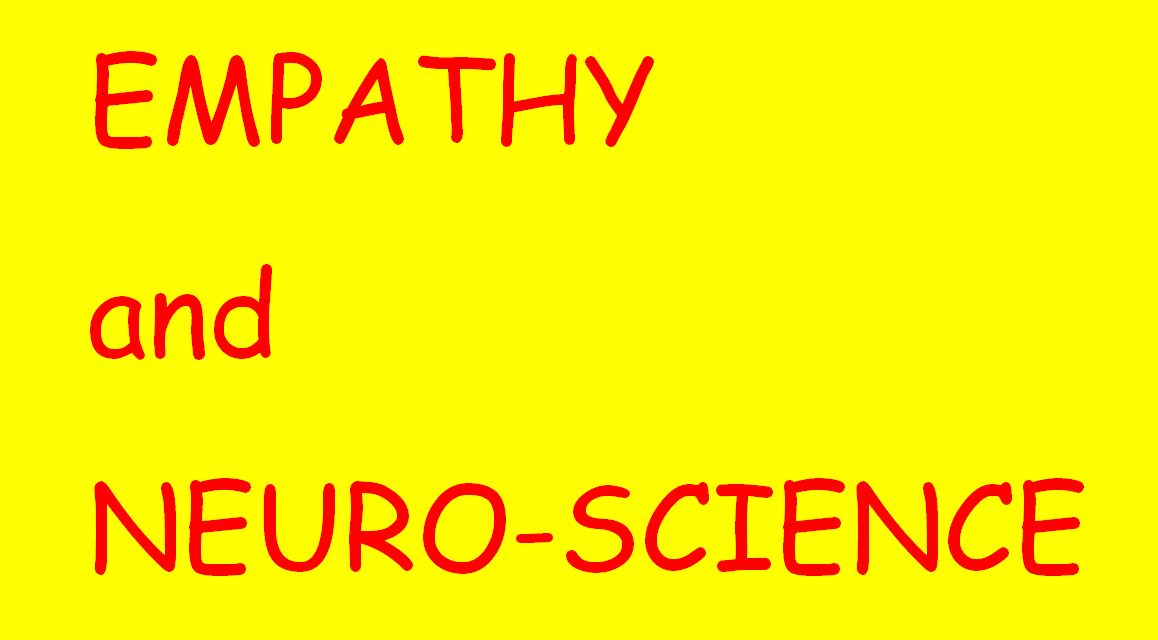 Recently, I have been writing about the impact of brain research on our understanding of psychology and its implications for psychotherapy.
Recently, I have been writing about the impact of brain research on our understanding of psychology and its implications for psychotherapy.
In this segment, I wish to explain how the very old psychological concept of empathy has been validated by modern neuro-science studies and why it is so important for emotional healing and growth.
So that we are all talking about the same thing, empathy is defined as the ability to focus on and experience another person’s emotions as well as to accurately and compassionately understand and accept without challenge or criticism what s/he is thinking and feeling. Put another way, empathy is simply listening without judgment or criticism or interruption to what a person is saying when they are expressing intense emotion. While it is simple to conceptualize, because of our own inner wounds and distraction, empathy is difficult to achieve.
Throughout human history, when people talk about unpleasant or difficult feelings, they have a fundamental emotional need to be heard, understood, accepted and cared about. Unfortunately, too often, many people have trouble paying careful attention when a person talks to them. The listener is frequently too pre-occupied or self-conscious or otherwise distracted to actually hear what is being said. Instead of carefully listening and understanding, too often, listeners misunderstand, interrupt and criticize.
When folks speak from the heart about difficult things , they are vulnerable and emotionally exposed. They need to speak when then feel troubled or threatened When they are not heard, the impact is traumatic and the experience of distress is deepened and intensified because they perceive their situation to be UNSAFE. When a person feels threatened , stress hormones like cortisol and adrenaline are secreted and the body shifts into survival mode which also causes connection to the cortex to disconnect.
Conversely, when a person experiences empathy from the person to whom they have spoken, the opposite happens. Compassionate acceptance conveys SAFETY and the threat alarm is turned off. Feeling safe, the person is calmed and feels better, become less emotional and are more able to think logically. Folks like Carl Rogers have understood for many years the power of empathy to calm dysphoric emotions and improve interpersonal communications.
Now, armed with modern brain research, we can understand both why, under stress, folks lose logical and reasonable perspectives and how logic and reason are regained. As we have seen before, when stressed or traumatized, the limbic part of the brain (that instinctive part which generates intense feelings like anger and fear), hi-jacks the neo-cortex ( the thinking and compassionate part) and breaks the neuro-pathways which transmit perception and experience to our conscious awareness. When upset a person does not have neurological access to the part of their brain that can think logically.
In extrapolating these findings, it is helpful to understand that non-demand activity and empathic experience help restore vital neuro-pathways to the cortex. Both clinically and interpersonally, it is important to remember that, when confronted with intense emotion, the most helpful response is to listen patiently and empathically. While the natural reaction is to respond by giving reassurance or suggestions to solve the problem, the best response is to patiently and calmly listen . With time , the upset state will calm down and the neurological connection to the cortex will be re-established. Once the neuro-pathways are restored, a realistic ,logical or problems solving conversation can be had.
These insights are not simply important for therapist. In everyday life, it is important to assess the state of mind a person is in when they are talking to you. Recognizing if a person is under the sway of his/her limbic system is critical in knowing how to respond. Trying to have a reasonable conversation with someone who is stressed out and disconnected from his/her cortex makes as much sense as trying to have a serious conversation with someone who is intoxicated.
Likewise, knowing the power of patient empathy is helpful to both the speaker and the listener. Empathy can calm the distressed mind and also soothe the listener’s own experience of distress that an intensely upset person can create. Overcoming the urge to “do something” and, in stead, simply listening empathically is a powerful intervention to employ when confronted by a person in panic. Indeed , you will find that doing less often accomplishes more.
Rev. Michael Heath, LMHC, Fellow AAPC



